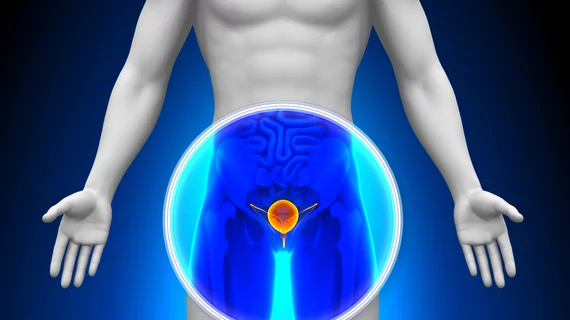Experts find flaw in prostate cancer PET imaging technique
Authors of a recent Journal of Nuclear Medicine study have discovered potential for misdiagnosis when relying solely on prostate-specific membrane antigen (PSMA) PET imaging in prostate cancer staging.
Lead author Christoph Rischpler, MD, and colleagues studied the PSMA-ligand uptake in cervical, coeliac and sacral ganglia in 407 patients. Compared to adjacent lymph node metastases, they found the uptake was above background levels in 401 patients—more than 98 percent.
The findings confirmed prior studies that determined benign tissue may also show increased PSMA expression—potentially causing confusion with lymph node metastases and unnecessary therapy changes.
“It is important that nuclear medicine physicians be aware of this pitfall, as the interpretation of PSMA PET scans may have a substantial impact on therapy guidance,” said Rischpler, with the department of nuclear medicine at the Technical University of Munich in Germany, in a news release.
Rischpler and colleagues urged nuclear medicine specialists to heed their warning, but not to completely disregard PSMA PET imaging. Instead, they suggested analyzing PSMA-ligand uptake together with exact localization and configuration of appropriate lesion to identify PSMA levels from ganglia and lymph node metastases, according to the release.
“We hope that an increased awareness among nuclear medicine physicians of this important pitfall helps to increase diagnostic accuracy and improve therapy guidance, preventing unnecessary procedures for prostate cancer patients,” Rischpler concluded.

